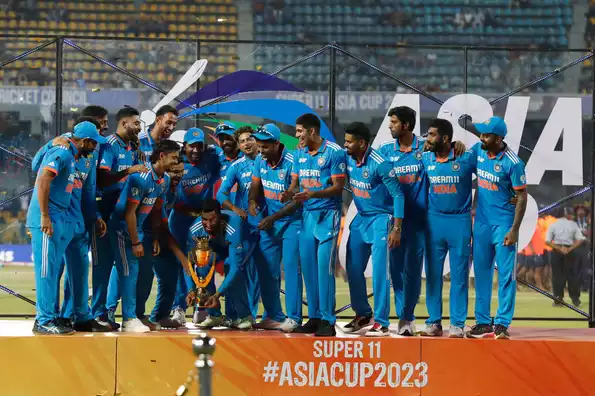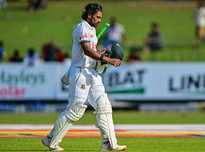The Asia Cup saga may be nearing a resolution. While it's too early for definitive conclusions, there's a growing sense of optimism surrounding the continental championship, a shift from earlier uncertainties fueled by tensions between India and Pakistan.

Although nothing is set in stone, indications suggest a formal decision may arrive next week. The Asian Cricket Council (ACC) aims to release the schedule for the six-team tournament in early July, coinciding with their expected meeting.
The ACC is reportedly targeting a September start, specifically around September 10, for the T20 format tournament. Participating teams include India, Pakistan, Afghanistan, Sri Lanka, Bangladesh, and the UAE. Promotional activities for the tournament are already underway.
The UAE remains the leading candidate to host the tournament, although a hybrid format is also under consideration. While India is the designated host, the ACC previously decided that when it is India or Pakistan's turn, the Asia Cup would be held at a neutral venue.
The tournament faced uncertainty following the Pahalgam terror attack in April, exacerbated by India's Operation Sindoor against Pakistan in May. This led to calls within India to boycott Pakistan in multilateral events, given the absence of bilateral cricket between the two nations. Discussions about a potential boycott in global events were even considered for the next ICC meeting.
However, recent developments suggest a potential shift. The International Cricket Council (ICC) released schedules for the Women's ODI World Cup (in India and Sri Lanka) and the Women's T20 World Cup (in England). In both tournaments, India and Pakistan are scheduled to clash: October 5 in Colombo and June 14 at Edgbaston, respectively.
While officials from the BCCI, ACC, and ICC have remained silent, it appears cricketing ties between the rivals will continue, at least in global events. These matches generate significant revenue for global cricket. While India and the Board of Control for Cricket in India (BCCI) aren't necessarily dependent on this revenue, governing bodies like the ICC, the ACC, and their member boards are.
Newer articles
Older articles
 Bangladesh Test Captain Najmul Hossain Shanto Resigns After Sri Lanka Series Defeat
Bangladesh Test Captain Najmul Hossain Shanto Resigns After Sri Lanka Series Defeat
 SA20 Auction: Teams Can Retain Up to Six Players as Salary Cap Jumps to $2.3 Million
SA20 Auction: Teams Can Retain Up to Six Players as Salary Cap Jumps to $2.3 Million
 Android Users Urged to Patch Now: Critical Security Flaws Expose Devices to Attacks
Android Users Urged to Patch Now: Critical Security Flaws Expose Devices to Attacks
 X Cracks Down: Over Half a Million Accounts Suspended in India for Policy Breaches
X Cracks Down: Over Half a Million Accounts Suspended in India for Policy Breaches
 What Your Phone Grip Says About You: A Personality Test
What Your Phone Grip Says About You: A Personality Test
 India's Squad Trimmed: Pacer Released Ahead of Second Test Against England in Birmingham
India's Squad Trimmed: Pacer Released Ahead of Second Test Against England in Birmingham
 Vegetarian Power: 20 Plant-Based Protein Sources That Outperform Eggs
Vegetarian Power: 20 Plant-Based Protein Sources That Outperform Eggs
 ICC Test Rankings: Pant Hits Career High, Bumrah Stays on Top, Root Leads Batters
ICC Test Rankings: Pant Hits Career High, Bumrah Stays on Top, Root Leads Batters
 Rishabh Pant Redefining Cricket: Greg Chappell Hails Wicketkeeper-Batter's Revolutionary Impact
Rishabh Pant Redefining Cricket: Greg Chappell Hails Wicketkeeper-Batter's Revolutionary Impact
 India's Fielding Woes and Top Order Collapse Blamed for First Test Defeat Against England: Former Selector Weighs In
India's Fielding Woes and Top Order Collapse Blamed for First Test Defeat Against England: Former Selector Weighs In